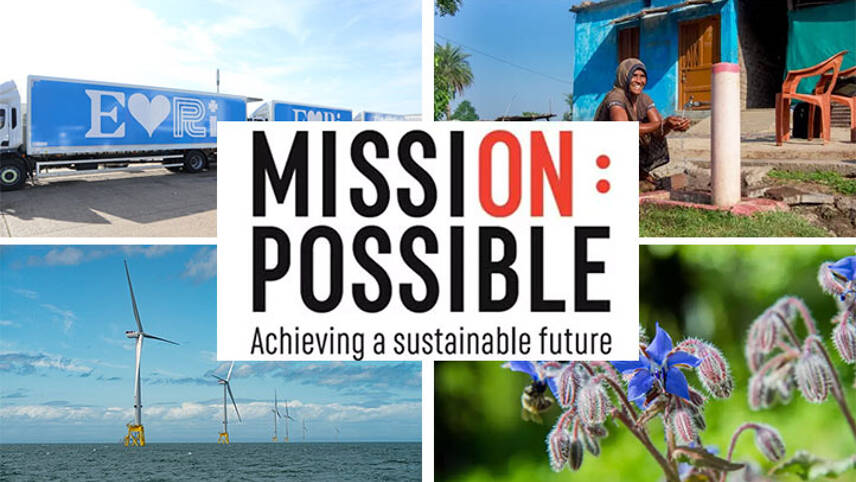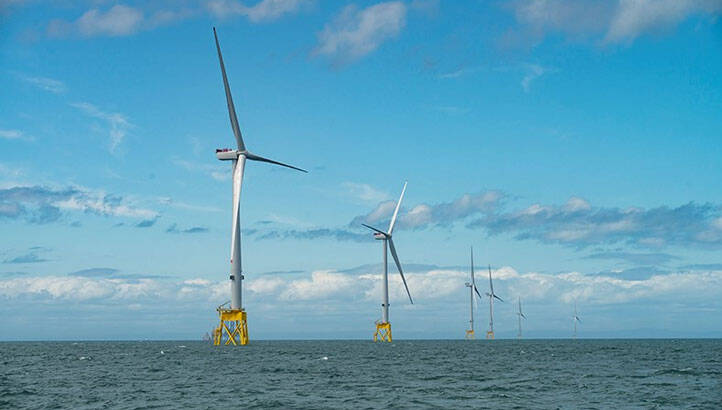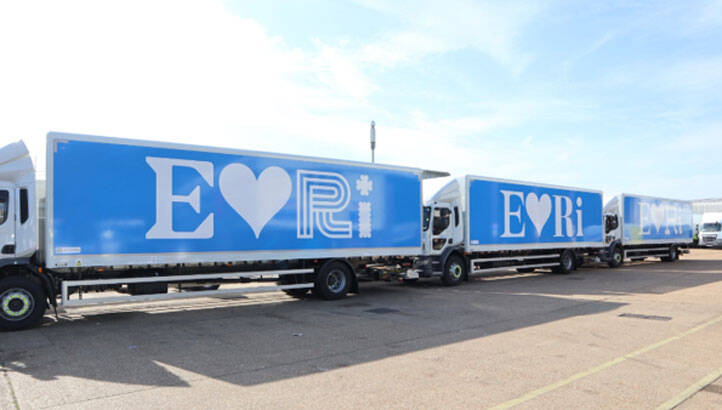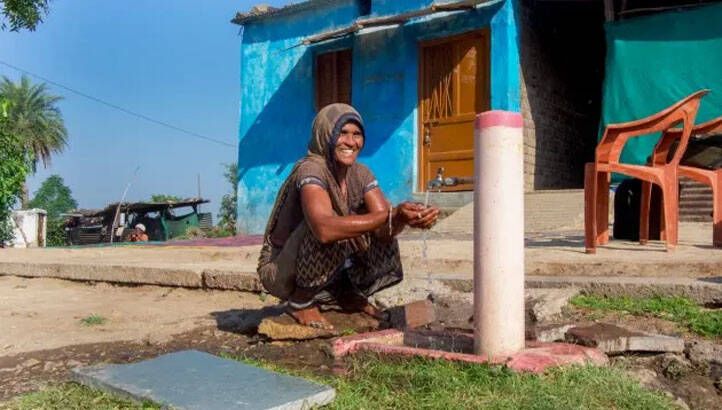Register for free and continue reading
Join our growing army of changemakers and get unlimited access to our premium content

Published every week, this series charts how businesses and sustainability professionals are working to achieve their ‘Mission Possible’ across the campaign’s five key pillars – energy, resources, infrastructure, mobility and sustainability leadership.
Across the UK and across the world, leading businesses, cities, states and regions are turning environmental ambitions into action. Here, we round up five positive sustainability stories from this week.
ENERGY: Scotland’s largest offshore wind farm now fully operational
Earlier this month, the largest offshore wind farm in the world, Dogger Bank, delivered first power off the coast of Yorkshire.
Now, developers SSE Renewables and TotalEnergies have confirmed that Scotland’s largest offshore wind array is now fully operational.
The £3bn Seagreen project, in the Firth of Forth off the Angus coast, comprises 114 turbines and has a capacity of just over 1GW. It is the deepest fixed wind farm in the world and includes floating turbines.
Seagreen’s developers are now exploring the feasibility of another phase of development including 36 additional turbines.
SSE chief executive Alistair Phillips-Davies said: “This is a big milestone for Seagreen and for Scotland. It shows that this country not only has world-class renewable resources but also world-class teams able to deliver major clean energy projects at scale. Seagreen’s ability to power up to 1.6 million homes will make a significant contribution to energy security and extend Scotland and the UK’s leadership in clean energy generation.”
RESOURCES: Elemis to upcycle supply chain waste into plastic-free sachets
A Plastic Planet estimates that 855 billion plastic sachets are sold or distributed globally each year. In the Global South, this packaging format enables low-income individuals to access affordable doses of personal care and cleaning products. In wealthier nations, common applications include for condiments and samples.
The packaging format is widely regarded as hard-to-recycle and, as such, is usually littered, landfilled or incinerated.
A potential solution comes from British beauty brand Elemis, which is working to transform plant waste from its product ingredients into bio-based films, which could be used to replace the flexible plastics currently used to package samples.
Elemis is collaborating with Xampla, a firm specializing in biodegradable materials, to develop the bio-based films. These will be produced using the firm’s existing processes for making Morro materials (its first materials on the consumer-facing market), but with plant waste from Elemis ingredient supply chains as the feedstock. You can read edie’s full story here.
MOBILITY: Evri orders its first pure-electric HGV
As a rule of thumb, the larger a vehicle is, the harder it is to completely electrify. Early supporters of pure electric HGVs include Tesco, Coca-Cola, Diageo and Sainsbury’s as well as Evri, which this week ordered its first.
The DAF XB eHGV has a range of up to 350km and is expected to be integrated into Evri’s fleet before Christmas. At the same time, the logistics giant continues to trial an additional two electric HGVs.
Evri’s head of fleet David Landy said: “I’m really proud of the investment our business continues to make in more sustainable vehicles, and I can’t wait to see what this vehicle can do in a highly demanding environment.
“We’ll be closely monitoring its performance so we can explore which other routes might be suitable for this kind of vehicle. Many of our routes require an extensive range to maintain efficiency of the parcel journey, so it’s the toughest area to decarbonise.”
Evri has additionally added 12 more bio-CNG tractor units to its fleet in the UK on a permanent basis, and 20 temporarily, meaning that it now has more than 200 bio-CNG vehicles in operation.
The news from Evri came in the same week that RECHARGE UK launched a new working group focused on the electrification of HGV fleets. The working group includes fleet operators like Royal Mail and Veolia as well as charging solution and vehicle providers.
THE BUILT ENVIRONMENT: Holcim Foundation for Sustainable Construction gears up to host awards next month
Pictured: 1925 Victoria Park Avenue, Toronto, Canada. Image: CREE Buildings
The Holcim Foundation for Sustainable Construction- the non-profit linked to building materials giant Holcim – has this week confirmed the finalists for its annual awards.
The 20 shortlisted projects have been selected by five panels of judges from across the world. They include low-cost modular housing in Canada; retrofit solutions for sites from heritage buildings to marine terminals to industrial parks; community learning centres made using recycled materials and a university fitted with rooftop solar and battery storage.
The Awards ceremony is taking place in Venice, Italy, on 18 November. It will also be live streamed online. The Holcim Foundation for Sustainable Construction is hosting the ceremony in partnership with industry publication ArchDaily.
“This year’s Holcim Awards finalists exemplify how it is possible – in this decisive decade to advance sustainable development – to pursue and deliver the application of innovative design and construction practices that provide a holistic response to meeting human development goals and regenerating natural systems,” said the Foundation’s executive director Laura Viscovich.
SUSTAINABILITY LEADERSHIP: New collaboration launched to bring water and sanitation to underserved communities in India
The UN estimates that 2.2 billion people still lack access to safely managed drinking water while 3.5 billion are without access to safely managed sanitation. Most of these people are in emerging or developing economies and the issue is particularly pronounced in water-stressed regions.
To help address this challenge, Gap, Cargill and GSK have teamed up with the businesses already participating in the CEO-led Water Resilience Coalition, plus NGO WaterAid, to deliver a programme of water and sanitation access work in India.
The Women + Water Collaborative aims to provide the communities around the Krishna and Godavari water basins with safely managed water and sanitation systems that are also climate-resilient. GSK notably has a manufacturing site in the latter basin, so the intervention should benefit its own employees.
WaterAid America’s chief executive Kelly Parsons said: “We know that solving the water crisis is a business imperative. We also know that none of the sustainable development goals will be achieved without global collaboration and partnership.
“By coordinating large, multi-stakeholder partnerships, we create holistic impact, at scale. That’s the power of collective action. Our impact is limited only by the number of corporate partners we are able to bring on.”







Please login or Register to leave a comment.